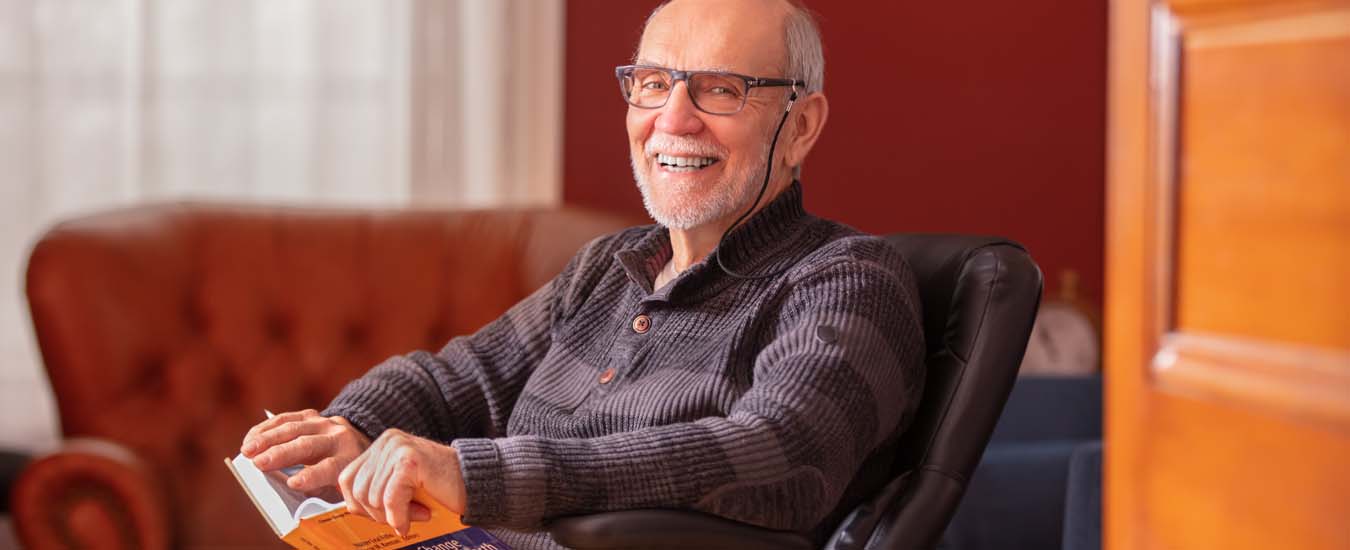Getting to know Omer Chouinard
Omer Chouinard spent his career studying the fishery in Atlantic Canada and the people who work in it. Professor emeritus of environmental studies at the University of Moncton, his work evolved to include everything from micro-plastic pollution to cranberry farming, eventually focusing on the impact of climate change on coastal communities and how people adapt. He’s worked around the world on issues in coastal communities and has served as visiting professor in Haiti, Slovakia, Martinique, and France. He was named to the Order of Canada for “his efforts to protect ecosystems in the Maritimes as a professor of environmental studies.” Saltscapes spoke with Omer Chouinard about tending cows, marrying into solidarity, and teaching for attachment.
Do you come from a fishing family?
My grandfather was a fisher. My father was a small scale, inshore fisherman from Gascons, Quebec on the New Brunswick border in the Baie de Chaleur area. He’d start in the middle of April when the ice was melting and fish until December. In the summertime, I was fishing with him.
What kind of fishing?
My father was probably the last generation who was a multi-purpose fisher: salmon, lobster, mackerel, herring, catfish, codfish. It was like that until the 60s. After that, the fishery became more specialized.
Was yours a large family?
We were eight. My father had two families. After his first wife died, he had another family: five kids and I was the last one. We had a small subsistence farm. As the youngest, my job was taking care of the four milk cows, the pigs, and different animals.
Much of your work and research took place on New Brunswick’s Acadian coast.
My wife came from the Acadian Peninsula. That’s why the attraction for me to New Brunswick. It’s more or less by affection. And also the solidarity with the people because they know me. It’s all a question of the confidence people have in you.
How would you describe your life’s work?
It was a wide range of work. It’s not only on the fisheries but also on quality of water, quality of life, and the security of the people along the coast. Since 1995, we started to talk more and more about climate change and its impact on coastal communities. That impact is more important in the Gulf of Saint Lawrence because the sandy coasts are more sensitive to storms.
Tell me about a notable climate change project.
Lamèque on the Acadian peninsula has a tradition of cooperatives, not only in the fishery, but with the credit union and consumer co-op. The fishers were united with the plant workers, the offshore, the inshore—they worked together. In 2008, they asked me to do a case study on wind farms. I worked with them on this issue with two students. In 2009, they started a wind farm co-op. They did a partnership with an international firm, Acciona. The return for the community is very high, plus returns for each individual. For them it was a big boost and the people are very proud.
What was important to you as a teacher?
If you want students to become proud of their communities, if you want to reinforce attachment to place, they must work on issues in those communities. A lot of students were coming from the coast of New Brunswick. It’s the same for international students coming from Senegal in West Africa, for instance, where the people speak French. Those students go back to their coastal villages and they are a great asset.
